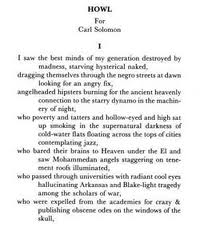Without a doubt, Susie was the youngest reader at last Wednesday’s poetry slam at Kafé Kerouac, but she stole the show. (I’ve always avoided slams and poetry groups. The reason is because hearing them go on about their poetry is like listening to teenage boys talking about sex: The ones who are talking about it the most are doing it the least.)
Susie made quite a hit with “My Poetry: The Musical!”, where she states that her (autobiographical) poetry would make quite a good musical–why should Dr. Seuss and Seussical the Musical have the monopoly on it, after all?
I mean, picture this:
a musical about
a bisexual girl
who writes poems
about suicide and how annoying her life is.
And somehow, fairies work their way in.
The emcee of the event led everyone in an a Capella rendition of “The Greatest Love of All” after Susie came down from the microphone and the small dais in the front of the room.
(Caveat lector: When I loaded this video to Facebook, I was able to successfully rotate it so that you would not have to turn your head sideways to view it. I did not have the same success when loading this to Blogspot. I will tell you, however, that Susie’s poetry debut is worth the sore neck. 07/10/2011)
I had to do a little on-the-scene adjusting of the lens and the settings on my DXG digital camera, so I apologize for the picture quality of the first 30-45 of the video. Fortunately I was sitting close to a speaker, so the audio is pretty crisp. (The microphone on this camera is not all that sensitive.)
The Kafé Kerouac poetry slam imposes a draconian penalty when a person does not put a cell phone on “vibrate.” Whenever mine has gone off during a meeting or a church service, usually I feel like there’s a big red neon arrow pointing straight at me, and that’s usually punishment enough. However, in this forum, everyone suffers as a result. The emcee pulled out his well thumbed copy of a novel, Daddy Long Stroke, written by Cairo, had an audience member choose a page at random, and read a two- or three-page passage from it. Daddy Long Stroke seems to be the literary equivalent of a blaxploitation movie. I remember how awed I was when I ordered a Grove Press paperback copy of My Secret Life, the anonymous memoirs of a well-to-do Victorian man named Walter who lived for nothing but sex. I was disappointed about how boring it was after the first few chapters–so repetitious.
Just in case you plan to defy the cell-phone-on-vibrate taboo, here is a video of the reading from Daddy Long Stroke:
We have definitely come a long way from when Walt Whitman lost his Interior Department paper-pushing job in the 1860s because of Leaves of Grass, or when Charles Bukowski’s poetry and writing constantly jeopardized his job as a third-shift mail sorter at the Los Angeles post office!

